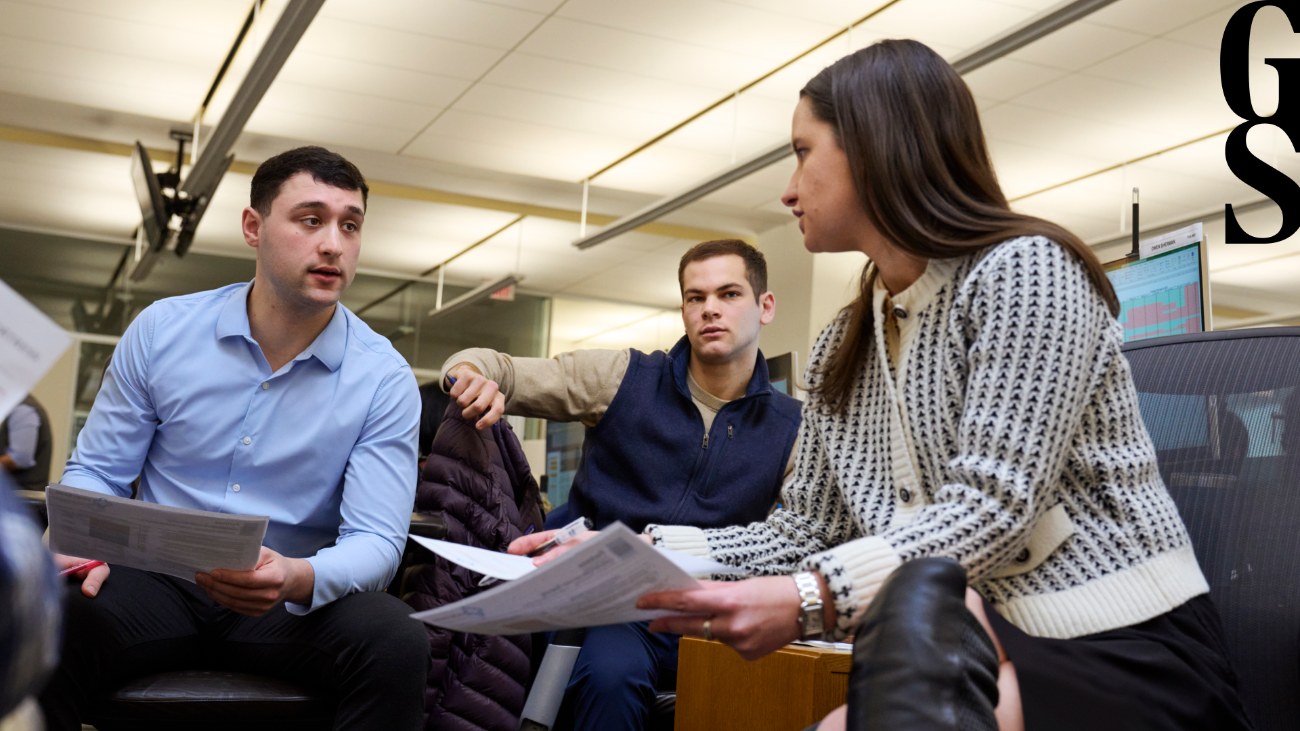| | | | | | | Presented By Goldman Sachs | | | | Axios AI+ | | By Ina Fried · Sep 23, 2024 | | Hello from New York, where I am very briefly in town to interview Sam Altman today and moderate a few sessions at the Clinton Global Initiative on Tuesday. Today's AI+ is 1,230 words, a 4.5-minute read. | | | | | | 1 big thing: Just you and your bots | | By Megan Morrone | | |  | | | Illustration: Brendan Lynch/Axios | | | | A new app that gives each user a private, Twitter-like social network populated exclusively by chatbots has stoked a wider debate about the purpose and value of online communication. The big picture: At first blush, SocialAI, the all-bot platform, might sound like "pure artifice" or an "AI void" — but its 28-year-old creator pitches it as an antidote to the toxicity of today's "real" social media. How it works: SocialAI has you choose what kinds of bots you want to interact with, using categories like supporters, fans, trolls, "brutally honest," haters, "doomers" and so forth. - The free app looks like X or Threads. You post what's on your mind, and your bots immediately respond.
To a lot of reviewers and early adopters, that sounds like a recipe for a personal echo chamber or a flattery machine. - SocialAI "comes across as sort of a joke, or maybe some kind of meta-commentary on the concept of social media and cheap engagement," one Verge critic wrote.
Yes, but: SocialAI creator Michael Sayman describes the experience like an online diary or writing a letter that you're never going to send — with the benefit of instant feedback. - "Most people don't select fans or bots that just please them," Sayman tells Axios. "They're actually selecting the debater, the contrarian, the realist. They're trying to find challenges to their views."
Zoom out: The random hostility of today's social media has made many users much more selective about what they publicly post online. - Sayman says he created the app because he pined for the time when he could chat on social media with a small circle of friends, get advice and meet new people.
- As he gained more followers, Sayman says, "I felt tremendous pressure on social media to conform, to fit in, to get the likes, to be whatever the algorithm of that social media site wanted me to be."
Sayman also noticed that people often try to work out their personal problems publicly online. - "Someone's in a fight in a relationship, and they'll go on social media and post about it and complain about what's going on." On a wide-open platform, that can cause grief.
Flashback: Sayman started developing apps as a kid to help his parents pay the bills as they struggled through the 2008 recession. - At 18, he went to work for Facebook as a software engineer, then became a product manager at Google and Roblox before founding Friendly Apps, which makes SocialAI.
SocialAI is a tiny operation. Sayman told Axios that he's still the only developer working on the app. - The platform runs on OpenAI's API and a few other models, Sayman says. That means the privacy of users' data depends on the policies of those models' makers.
State of play: People are turning to bots like ChatGPT for therapy, life coaching and even romantic companionship. - Sayman is quick to say that he doesn't see any of these uses of genAI as a replacement for interaction between actual people. "I think human people know each other best," Sayman says.
- But friends are not always available at all times to listen to all of our problems and answer all of our questions, he argues.
While experts disagree on whether AI is a good cure for loneliness, people are already befriending bots — and investors see a business opportunity in the phenomenon. - Personal chatbot maker Character.AI raised $150 million before Google hired the co-founders and bought out venture investors at around a $2.5 billion valuation, as Axios' Dan Primack reported in August.
Ryan Hoover, founder of Weekend Fund, invested in the $3 million raise for SocialAI's parent company, Friendly Apps, in 2022. - "I grew up playing video games," Hoover told Axios, likening the relationships people are building with AI bots to the connections they form with video game characters.
Reality check: For many users, a "social" experience means encounters with actual human beings. - Even some who embrace the concept of companion bots think a bots-only personal network might be a bridge too far.
- "It's great for someone who wants immediate answers and brainstorming ideas from lots of different viewpoints," Sara Megan Kay, an author who chronicles her experiences with her digital companion at My Husband, The Replika, told Axios in an Instagram DM.
- "But some users might still take the experience a little too seriously, or have delusions of grandeur."
|     | | | | | | 2. Half of states seek to restrict AI in elections | | |  Data: Axios research; Map: Axios Visuals As the 2024 election cycle ramps up, at least 26 states have passed or are considering bills regulating the use of generative AI in election-related communications, a new analysis by Axios shows. Why it matters: The review lays bare a messy patchwork of rules around the use of genAI in politics, as experts increasingly sound the alarm on the evolving technology's power to sway or disenfranchise voters. - There have already been instances of genAI being "used to confuse — and even suppress — voters," Sen. Mark Warner (D-Va.) told Axios in an email.
- "I don't think genAI developers or platforms are taking the misuse potential serious enough," added Warner, chair of the Senate Intelligence Committee.
Catch up quick: In January, a spate of fake robocalls in New Hampshire used an AI-generated impersonation of Biden's voice to urge Democrats not to vote in the state's primary. - In another high-profile incident, last July a super PAC backing Florida Gov. Ron DeSantis in the GOP primary used AI to imitate Trump's voice in an ad attacking him. The Trump campaign slammed the ad as a "desperate attempt" to "deceive the American public."
The big picture: There are few federal guardrails in place to regulate the use of AI — even President Biden's AI executive order is largely voluntary, with little enforcement power. Go deeper |     | | | | | | 3. ChatGPT maker funds efforts to broaden AI's reach | | |  | | | Illustration: Aïda Amer/Axios | | | | OpenAI said Monday it has paid to translate and publish a key AI benchmark into 14 languages in hopes of spurring more investment in non-English AI systems. Why it matters: Much of the internet text used to train AI systems is in English and a handful of other languages. Driving the news: OpenAI said that the Massive Multitask Language Understanding (MMLU) benchmark will be available in Arabic, Bengali, Chinese, French, German, Hindi, Indonesian, Italian, Japanese, Korean, Portuguese, Spanish, Swahili and Yoruba. - The ChatGPT maker is also launching OpenAI Academy, providing grants, technical advice and other incentives to developers and organizations that are working to address local challenges, an effort that will kick off in a range of low- and middle-income countries.
Between the lines: OpenAI is making these announcements as CEO Sam Altman attends his first UN General Assembly week in New York and meets with various international officials. - Altman will highlight this new initiative at a State Department event this afternoon, where he will speaking alongside Secretary of State Antony Blinken.
- I'll be interviewing Altman later today on stage, alongside Amandeep Gill, the United Nations Secretary-General's envoy on technology.
|     | | | | | | A message from Goldman Sachs | | Cloud computing is poised to reach $2 trillion in revenue | | |  | | | | Generative AI is expected to drive 10-15% of cloud sales, amounting to $300 billion. The takeaway: The ROI for generative AI is hard to quantify — just as it was in the early stages of cloud computing — but the spending has started now. Read more. | | | | | | 4. Training data | | | - Qualcomm reportedly wants to buy Intel in what would be the biggest tech merger ever. Meanwhile, investment giant Apollo is said to be offering to invest billions in the struggling U.S. chipmaker. (Axios, Bloomberg)
- The CEO of Scale describes how he does the "mundane and unsexy" work that powers global AI. (Wall Street Journal)
- After weeks of complaining, Elon Musk's X is complying with a Brazilian court order, paving the way for the social network to again be available there. (The Verge)
|     | | | | | | 5. + This | | | | It's time to figure out which pumpkin is this year's largest. |     | | | | | | A message from Goldman Sachs | | Where is AI investment going after semiconductors? | | |  | | | | Increases in AI spending — and increases in stock prices — have mostly centered on infrastructure companies. Looking ahead: Expect opportunities in platforms that provide building blocks for next-gen AI apps, as well as the software companies that will create them. Read more. | | | | Thanks to Megan Morrone and Scott Rosenberg for editing this newsletter and to Caitlin Wolper for copy editing it. |  | Your essential communications — to staff, clients and other stakeholders — can have the same style. Axios HQ, a powerful platform, will help you do it. | | | |

0 comentários:
Postar um comentário